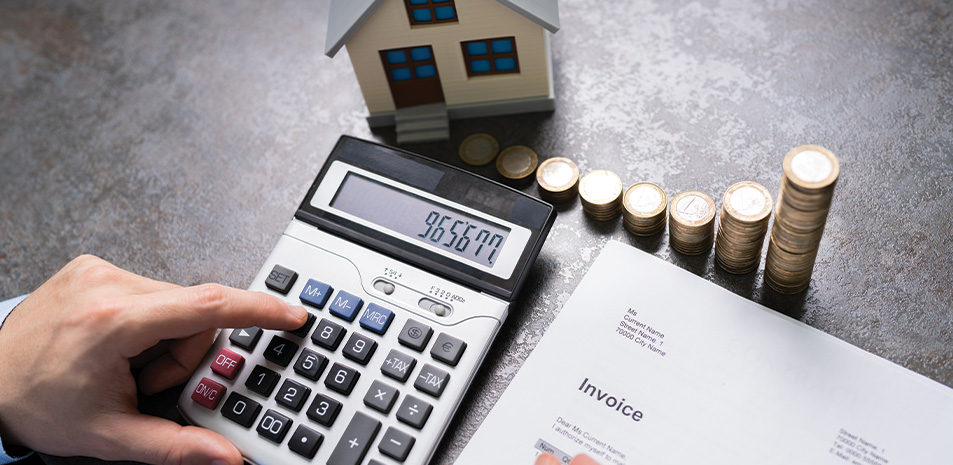Setting a Realistic Budget for Buying an Apartment: A Step-by-Step Guide
Buying an apartment is a significant financial decision that requires careful planning and budgeting. Determining your budget is the first step in the homebuying process and sets the foundation for your search. In this blog post, we’ll provide a step-by-step guide to help you determine a realistic budget for buying an apartment.
Evaluate Your Financial Situation:
Start by evaluating your current financial situation, including your income, savings, and existing debt obligations. Calculate your monthly income and expenses to get a clear picture of your financial health. Consider factors such as your credit score, employment stability, and future earning potential when assessing your ability to afford a mortgage.
Calculate Your Down Payment:
Determine how much you can afford to put down as a down payment on the apartment. While conventional wisdom suggests a down payment of 20% of the purchase price, there are loan programs available that require lower down payments. Aim to save as much as possible for your down payment to reduce your monthly mortgage payments and avoid private mortgage insurance (PMI) if possible.
Estimate Your Monthly Mortgage Payment:
Use an online mortgage calculator to estimate your monthly mortgage payment based on your down payment, interest rate, loan term, and property taxes. Factor in other housing-related expenses such as homeowners association (HOA) fees, insurance premiums, and maintenance costs. Aim to keep your total monthly housing expenses within 25-30% of your gross monthly income to ensure affordability.

Consider Additional Costs:
In addition to your monthly mortgage payment, consider other one-time and ongoing costs associated with buying and owning an apartment. These may include closing costs, property taxes, homeowners insurance, maintenance and repairs, utilities, and HOA fees. Be sure to budget for these expenses to avoid financial strain after purchasing the apartment.
Get Pre-Approved for a Mortgage:
Once you have a rough estimate of your budget, it’s essential to get pre-approved for a mortgage from a lender. This involves submitting financial documentation, such as pay stubs, tax returns, and bank statements, to verify your income, assets, and creditworthiness. A pre-approval letter from a lender will give you a clearer picture of how much you can afford to borrow and help you narrow down your search to apartments within your budget.
Shop Within Your Means:
With your pre-approval in hand, you can begin shopping for apartments that fall within your budget. Resist the temptation to overspend or stretch your budget to buy a more expensive property. Stick to your budget and focus on finding a home that meets your needs and financial goals without compromising your financial stability.

Factor in Long-Term Financial Goals:
When determining your budget for buying an apartment, consider your long-term financial goals and priorities. Think about how homeownership fits into your overall financial plan and whether buying an apartment aligns with your future goals, such as saving for retirement, paying off debt, or starting a family. Make sure your housing expenses leave room in your budget for other financial priorities and emergencies.
Consult with a Financial Advisor:
If you’re unsure about how much you can afford to spend on an apartment, consider consulting with a financial advisor or mortgage broker for personalized guidance. A financial professional can help you evaluate your financial situation, explore loan options, and create a budget that aligns with your goals and lifestyle.
Be Flexible:
Keep in mind that your budget may need to be adjusted based on market conditions, interest rates, and changes in your financial situation. Be flexible and open to exploring different options that fit within your budget constraints. Remember that buying an apartment is a long-term commitment, so it’s essential to choose a property that you can comfortably afford for the foreseeable future.
Review and Revise Your Budget Regularly:
Once you’ve purchased an apartment, continue to review and revise your budget regularly to ensure you stay on track with your financial goals. Monitor your expenses, track your spending, and adjust your budget as needed to accommodate changes in your income, expenses, and lifestyle.
In conclusion, determining your budget for buying an apartment requires careful consideration of your financial situation, goals, and priorities. By following these steps and consulting with financial professionals as needed, you can create a realistic budget that allows you to purchase an apartment within your means and achieve your homeownership dreams.










